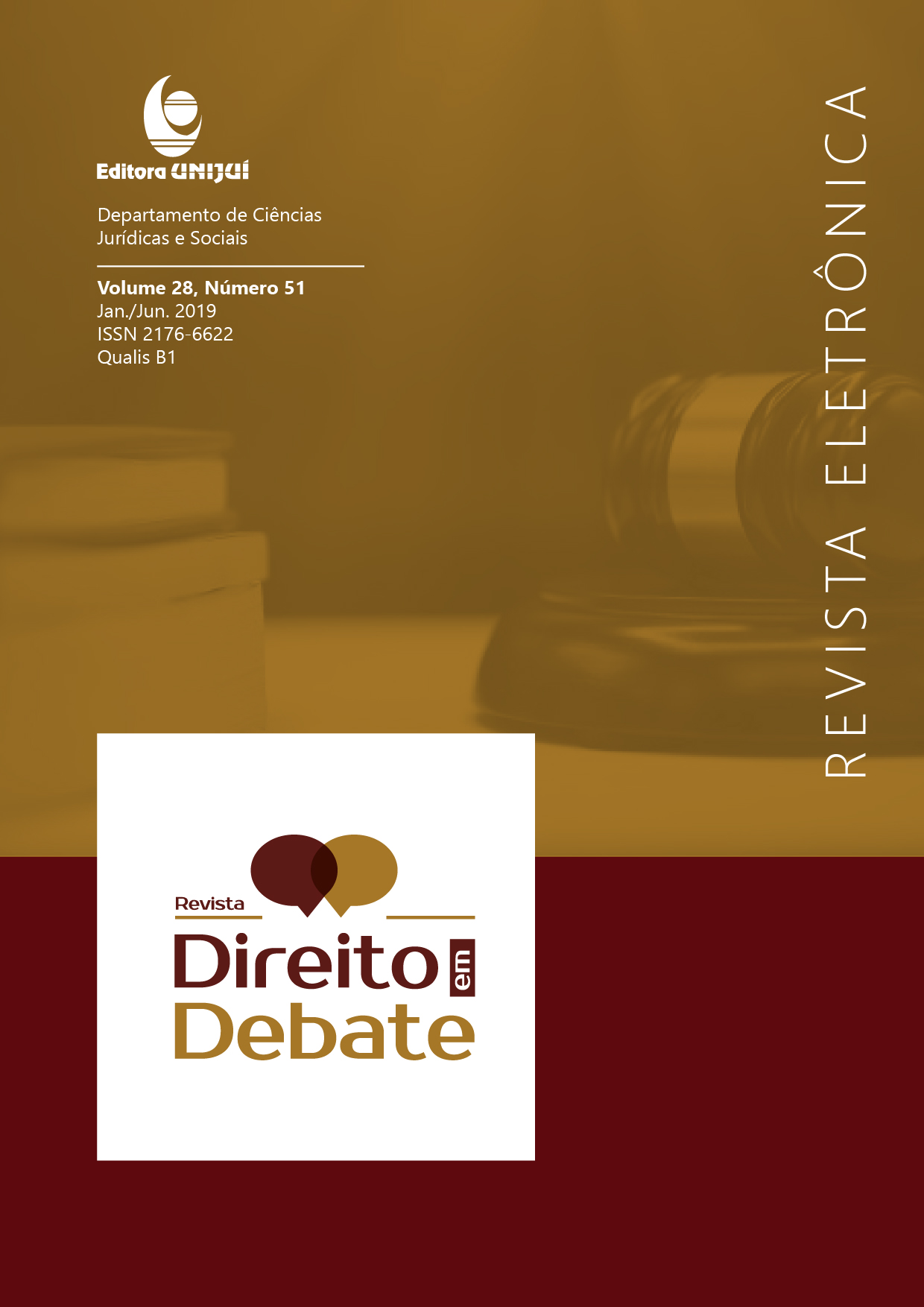O ENSINO JURÍDICO E A CONSTRUÇÃO DO ESTADO BRASILEIRO PÓS INDEPENDÊNCIA: DAS ACADEMIAS AO PODER
DOI:
https://doi.org/10.21527/2176-6622.2019.51.78-87Palavras-chave:
cursos jurídicos; pós independência; bacharel; burocracia estatalResumo
Os primeiros cursos jurídicos no Brasil foram criados em 1827, com a instalação das faculdades de direito de São Paulo e Olinda (esta última transferida para Recife em 1854). Essas Academias desempenharam relevante papel no projeto de desenvolvimento do país no período pós independência, pois formaram inúmeros bacharéis que até hoje são lembrados por suas notáveis contribuições na história brasileira, apesar de poucos terem se destacado por sua atuação na área jurídica. Através de uma pesquisa realizada na historiografia, o presente artigo teve por objetivo analisar o que se ensinava nas tradicionais faculdades de direito do Brasil nas primeiras décadas da criação dos cursos superiores. Chegou-se à conclusão que os cursos direito, mais do que a produção do conhecimento jurídico, estavam voltados à formação de uma elite ideologicamente integrada de acordo com os interesses do modelo político-liberal que se pretendia estabelecer, servindo as Academias como centro de recrutamento de profissionais para a composição dos quadros da burocracia estatal, incluindo o Poder Judiciário. Em outros termos, era por meio das faculdades de São Paulo e Olinda/Recife que se forjava o bacharel responsável pela formatação da organização política e econômica então desejada pela elite dominante à época.
Downloads
Publicado
Como Citar
Edição
Seção
Licença
Ao publicar na Revista Direito em Debate, os autores concordam com os seguintes termos:
Os trabalhos seguem a licença Creative Commons Atribuição 4.0 Internacional (CC BY 4.0), que permite:
Compartilhar — copiar e redistribuir o material em qualquer meio ou formato;
Adaptar — remixar, transformar e criar a partir do material para qualquer fim, inclusive comercial.
Essas permissões são irrevogáveis, desde que respeitados os seguintes termos:
Atribuição — os autores devem ser devidamente creditados, com link para a licença e indicação de eventuais alterações realizadas.
Sem restrições adicionais — não podem ser aplicadas condições legais ou tecnológicas que restrinjam o uso permitido pela licença.
Avisos:
A licença não se aplica a elementos em domínio público ou cobertos por exceções legais.
A licença não garante todos os direitos necessários para usos específicos (ex.: direitos de imagem, privacidade ou morais).
A revista não se responsabiliza pelas opiniões expressas nos artigos, que são de exclusiva responsabilidade dos autores. O Editor, com o apoio do Comitê Editorial, reserva-se o direito de sugerir ou solicitar modificações quando necessário.
Somente serão aceitos artigos científicos originais, com resultados de pesquisas de interesse que não tenham sido publicados nem submetidos simultaneamente a outro periódico com o mesmo objetivo.
A menção a marcas comerciais ou produtos específicos destina-se apenas à identificação, sem qualquer vínculo promocional por parte dos autores ou da revista.
Contrato de Licença (para artigos publicados a partir de 2026): Os autores mantém os direitos autorais sobre seu artigo, e concedem à Revista Direito em Debate o direito de primeira publicação.










